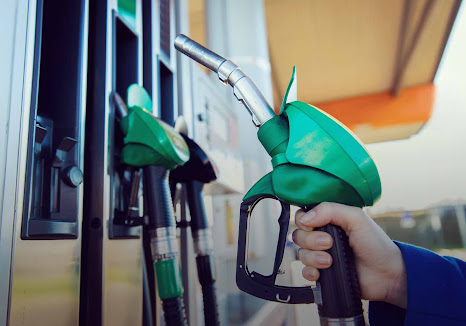Clean Diesel Market Revolution: Sustainable Solutions for the Future
The Clean Diesel Market represents a dynamic and evolving segment of the automotive and transportation industry. In an era marked by heightened environmental awareness and stricter emissions regulations, clean diesel technology has emerged as a vital player in the effort to reduce greenhouse gas emissions and improve fuel efficiency. This article delves into the Clean Diesel Market, examining its current state, key drivers, challenges, and future prospects.
Understanding Clean Diesel
Clean diesel market refers to a class of diesel engines and fuels that have been engineered to reduce harmful emissions and enhance fuel efficiency. It is a significant departure from the conventional diesel engines that were once notorious for emitting high levels of pollutants such as nitrogen oxides (NOx) and particulate matter (PM). Clean diesel technology relies on various advancements, including low-sulfur diesel fuel, advanced exhaust aftertreatment systems, and precision engine controls to achieve its objectives.
Key Drivers of the Clean Diesel Market
Emissions Reduction: One of the primary drivers of the Clean Diesel Market is the pressing need to reduce harmful emissions from diesel-powered vehicles. Governments and regulatory bodies worldwide have introduced stringent emissions standards, prompting automotive manufacturers to invest in clean diesel technology.
Fuel Efficiency: Clean diesel engines are known for their superior fuel efficiency compared to traditional gasoline engines. This attribute is particularly attractive in commercial transportation, where fuel costs can significantly impact operational expenses.
Renewable Diesel: The emergence of renewable diesel, made from sustainable feedstocks such as plant oils or animal fats, has further boosted the clean diesel market. Renewable diesel can be used as a drop-in replacement for traditional diesel and significantly reduces carbon emissions.
Alternative to Electric: While electric vehicles (EVs) have gained considerable attention, clean diesel continues to play a crucial role in cases where electric powertrains are not yet practical, such as long-haul trucking and heavy machinery.
Challenges Facing the Clean Diesel Market
Regulatory Hurdles: Meeting stringent emissions regulations is a significant challenge for manufacturers in the clean diesel market. Stricter standards require ongoing research and development to achieve compliance.
Public Perception: Diesel engines have long been associated with pollution, which has tarnished their public image. Overcoming this perception is a key challenge for the clean diesel market.
Electric Vehicle Competition: The rise of electric vehicles poses a competitive threat to clean diesel technology in passenger cars and urban transportation.
Infrastructure Limitations: For renewable diesel to thrive, the infrastructure for its production and distribution must expand significantly, which presents logistical challenges.
Future Prospects of the Clean Diesel Market
The Clean Diesel Market Trend is far from stagnant. Despite the challenges it faces, there are several promising developments on the horizon:
Advanced Emissions Controls: Ongoing research into advanced emissions control technologies, such as selective catalytic reduction (SCR) and diesel particulate filters (DPF), will continue to improve the environmental performance of clean diesel engines.
Sustainable Fuels: The growth of renewable diesel and other sustainable diesel fuels will reduce the carbon footprint of diesel-powered vehicles, making them more appealing to environmentally conscious consumers and businesses.
Commercial Vehicle Dominance: Clean diesel technology is likely to remain dominant in commercial and industrial applications due to its fuel efficiency and range.
Hybridization: The integration of hybrid powertrains, combining diesel engines with electric components, offers the potential for even greater efficiency gains in the clean diesel market.
Conclusion
The Clean Diesel Market represents a critical segment of the transportation industry, offering a balance between fuel efficiency and reduced emissions. While it faces challenges, including regulatory hurdles and competition from electric vehicles, ongoing advancements in technology and the growth of sustainable fuels suggest a bright future. Clean diesel technology will continue to evolve and play a vital role in reducing the environmental impact of diesel-powered vehicles, especially in commercial transportation and heavy machinery sectors. As global efforts to combat climate change intensify, clean diesel will likely remain a valuable part of the solution.



.png)
Comments
Post a Comment